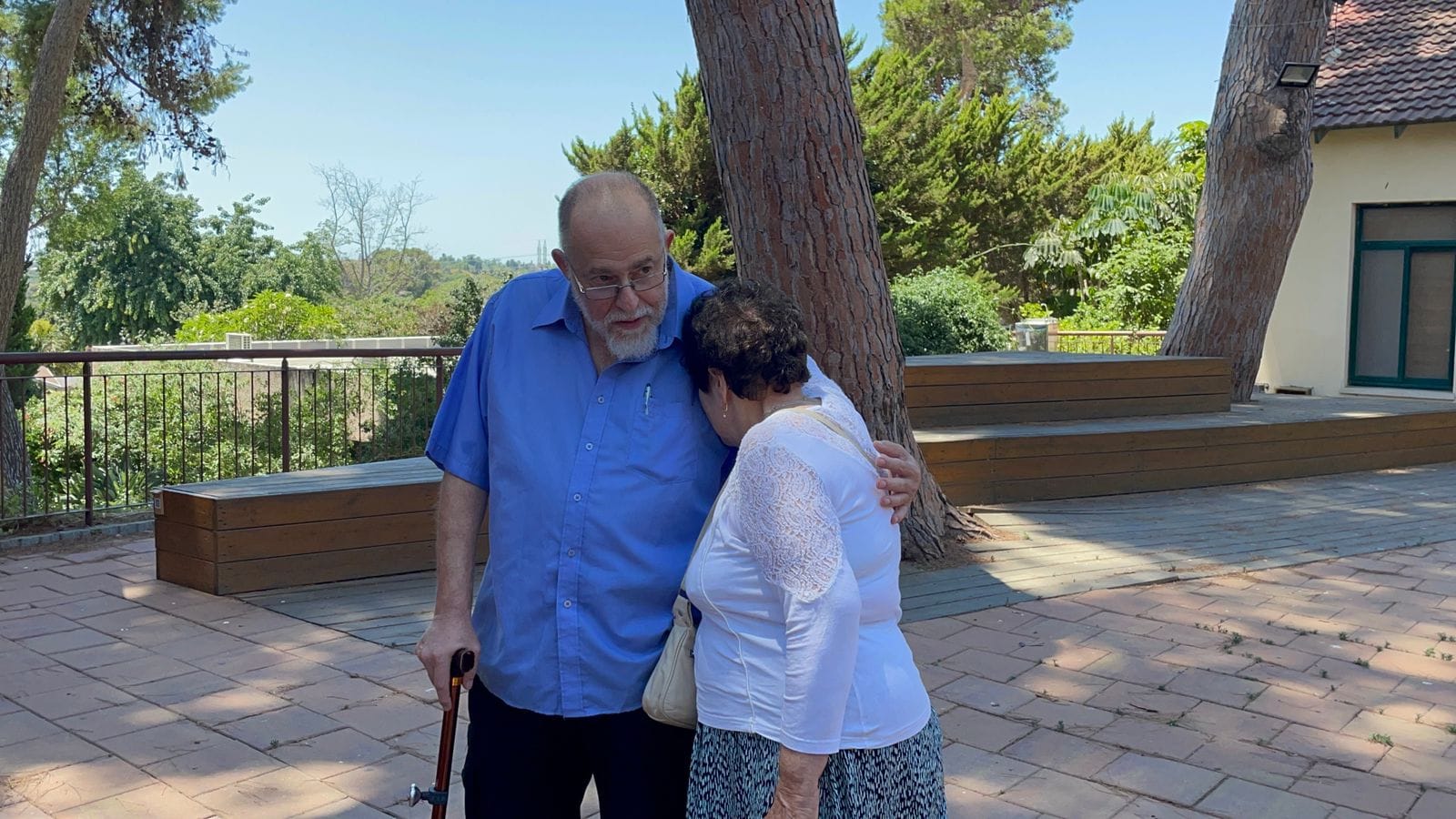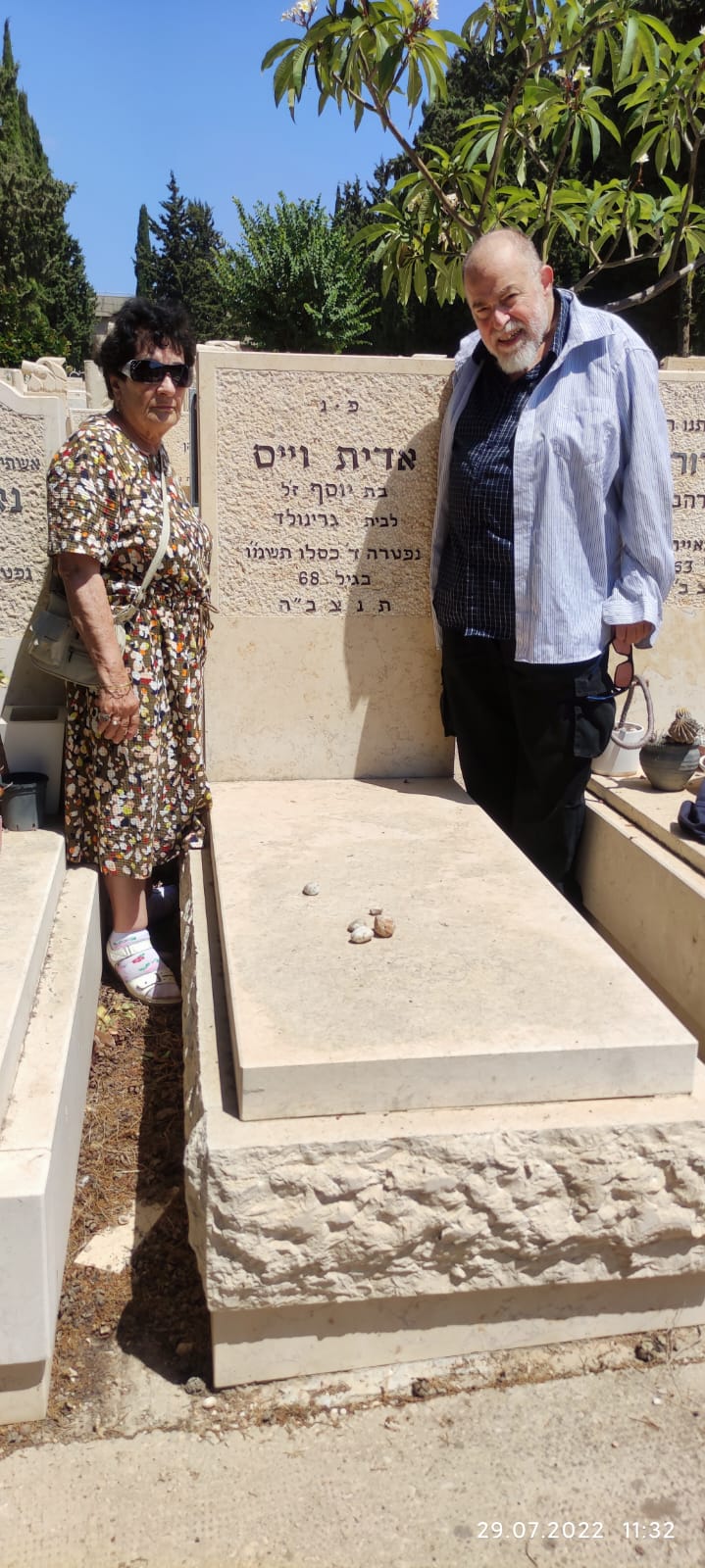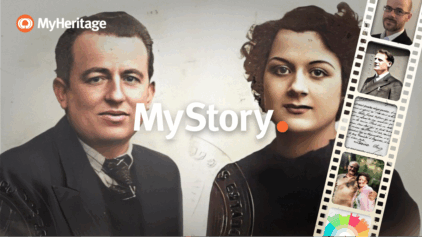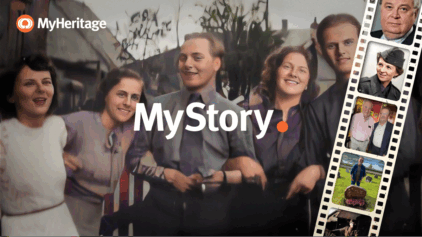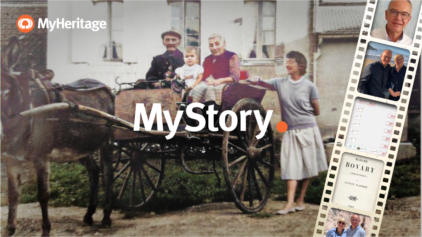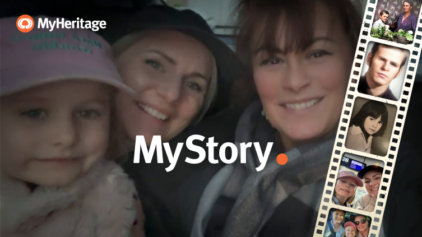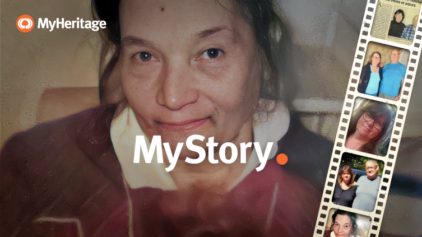Her Parents Left Her on a Bench to Save Her from the Nazis. At 80, She Reunited with a Long-Lost Cousin
- By Daniella
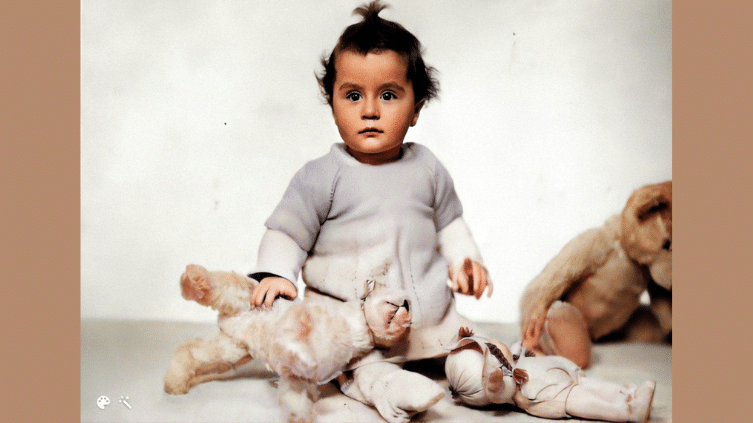

When the Gestapo boarded the train carrying Marta and Alexandr Knapp during their attempted escape from Prague in June 1942, they had to make a fast decision.
They knew that the Nazis would find them. They knew that they would probably never return from wherever they would be taken. And they knew that their baby daughter, Alice, had no chance of surviving if she stayed with them.
So — like biblical Jochebed setting baby Moses afloat on the Nile — they decided to put their trust in fate. They left Alice on a bench outside the station and prayed that someone would find her and save her life.
Someone did.
Marta and Alexandr were sent to their deaths, but their one last desperate act to save their daughter was successful: Alice survived the war and was reunited with Marta’s sister, Alice’s aunt Edith. They were separated when Edith immigrated to Palestine, and lost touch over the years.
Alice never knew what became of her aunt or the son her aunt mentioned in one of her final letters… until a distant cousin, living 5,000 miles away in South Africa, received a Smart Match™ on MyHeritage that reunited the long-lost relatives.
Their beautiful story was recently covered on CNN.
A family torn apart
The sisters Marta and Edith Grunwald were born in the Austro-Hungarian region: Marta in Debrecen, Hungary in 1912, and Edith in Lučenec, Slovakia, in 1917. They grew up in a well-established, educated Jewish family, and both studied at the university in Prague. When World War II broke out, Edith moved to Lučenec, then part of Hungary, where most of the family lived at the time, while Marta remained in Prague with her husband Alexandr Knapp. In May of 1941, under the shadow of Nazi occupation, the couple welcomed their first and only daughter, Alice.
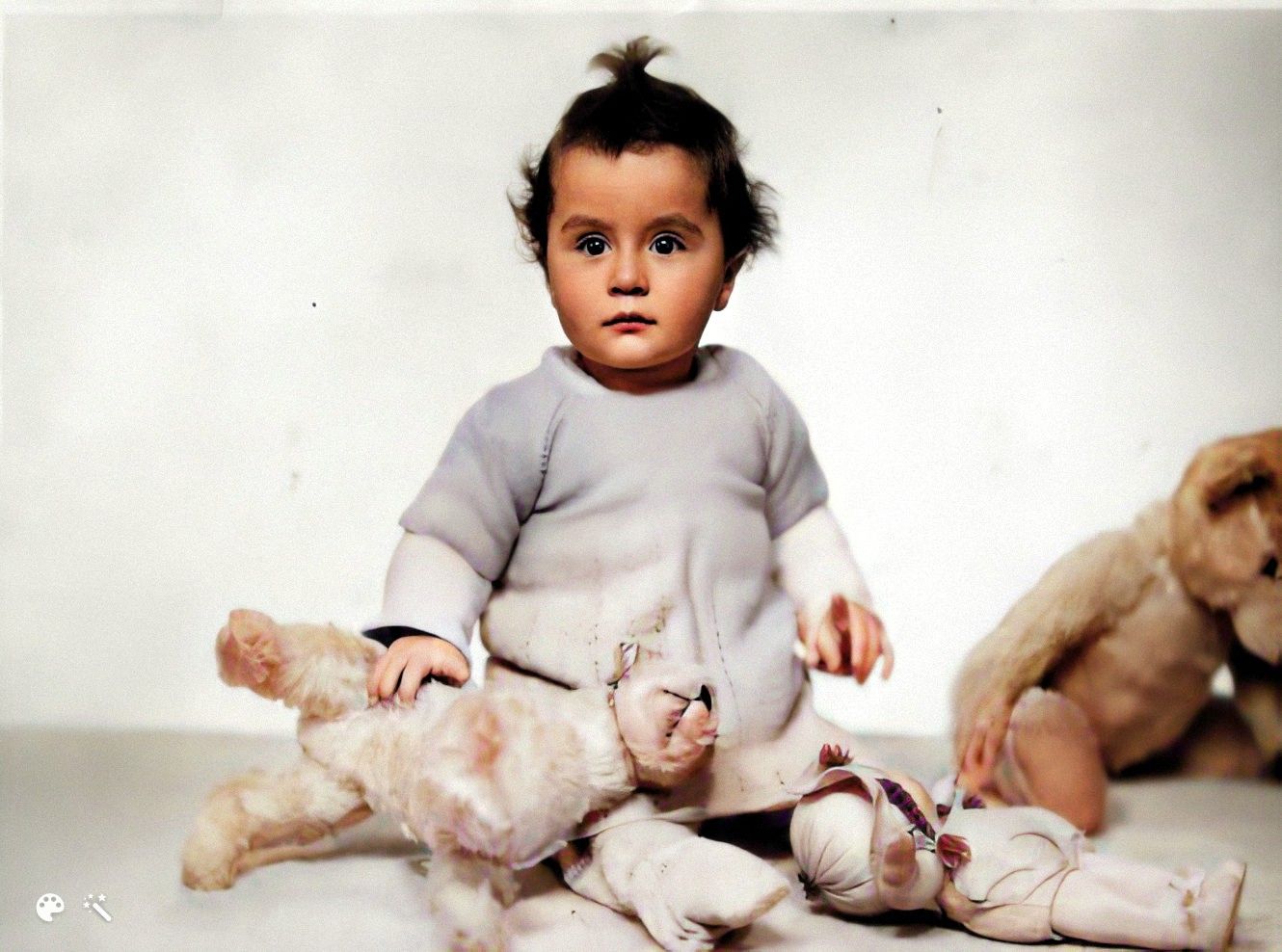
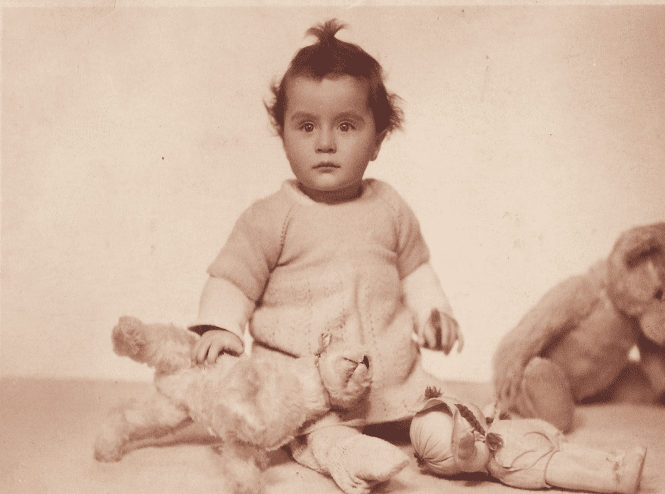
A year later, in June of 1942, the Knapps understood that their only chance of surviving was to flee the Protectorate. Unfortunately, when the train pulled into the Pardubice station, the Gestapo boarded the train and began checking documents. Marta placed her daughter on a bench near the station, hoping against hope that someone would find and take care of her.
“As a child and even when I got older I reproached my own mom in a way for having me so late, at the time of the transports. I simply found it irresponsible,” Alice said in her Memory of Nations testimony. “But on the other hand, upon finding out about my mom saving my life, I tend to understand that she wanted a child so much and how hard it must have been to let go of it. I see her as a hero of sorts for saving my life. I cannot imagine how she must have felt while leaving the baby covered in a blanket on a bench. She ended up this way and never knew that she saved my life.”
Marta and Alexandr were arrested and eventually deported to Auschwitz, where they perished. Alice was found by passersby and taken to an orphanage in Karlovy Vary, where she was cared for along with other children, some of them Jewish. She was darker than the other children, so when the Germans inspected the orphanage they identified her as a Jewish child and took her and the other children to Theresienstadt, where they set up a “model ghetto” for PR purposes that presented a patently false, sanitized representation of how the regime was treating its Jews. Fortunately for Alice, this meant she was treated well: they fed her and gave her nice clothes so she would look healthy and well-cared-for for photo ops and visits from the Red Cross. She was later joined by her 16-year-old stepbrother, Rene, her father’s son from a previous marriage. He took care of her there, but in 1944, he and his friends were sent to Auschwitz and murdered.
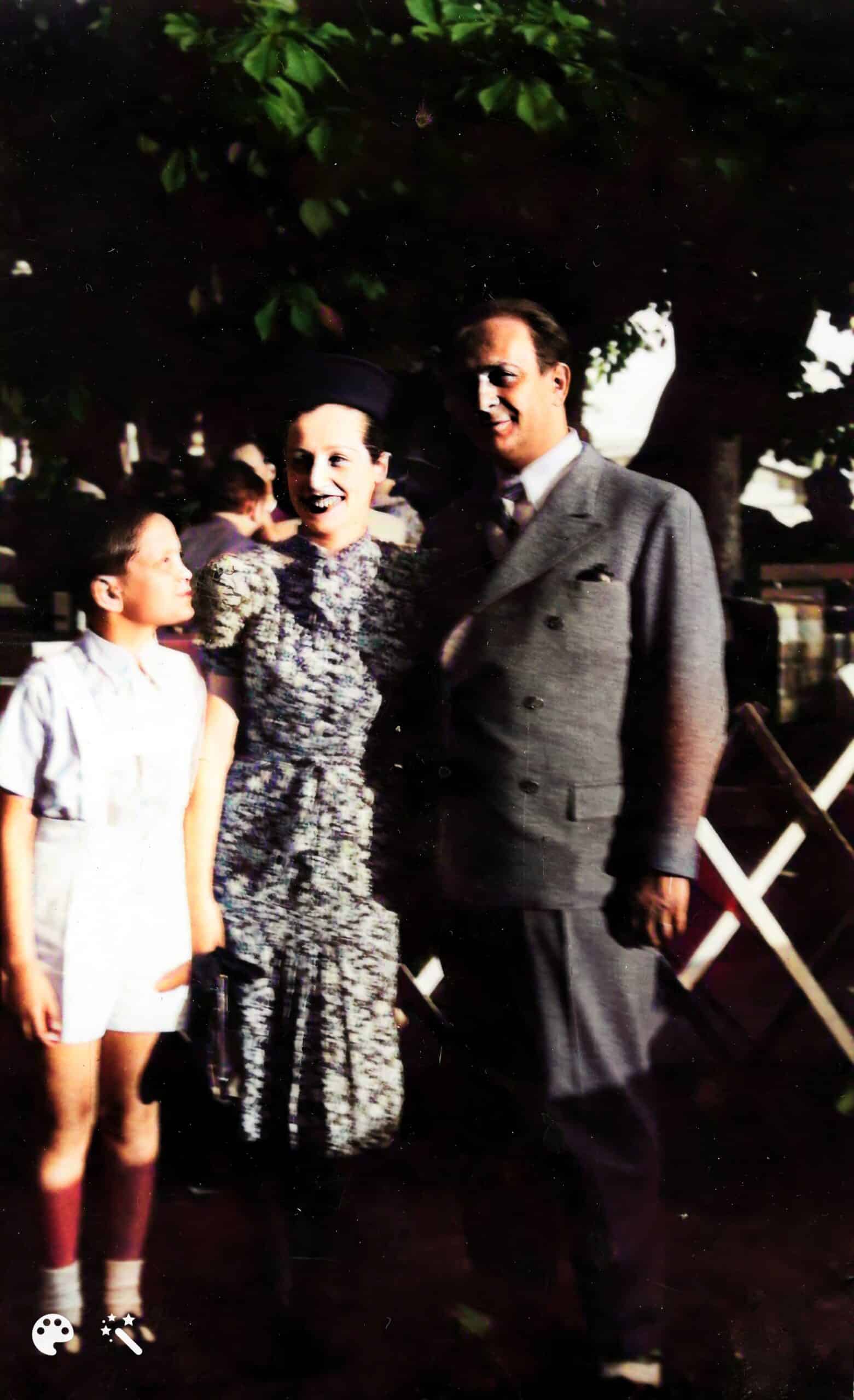
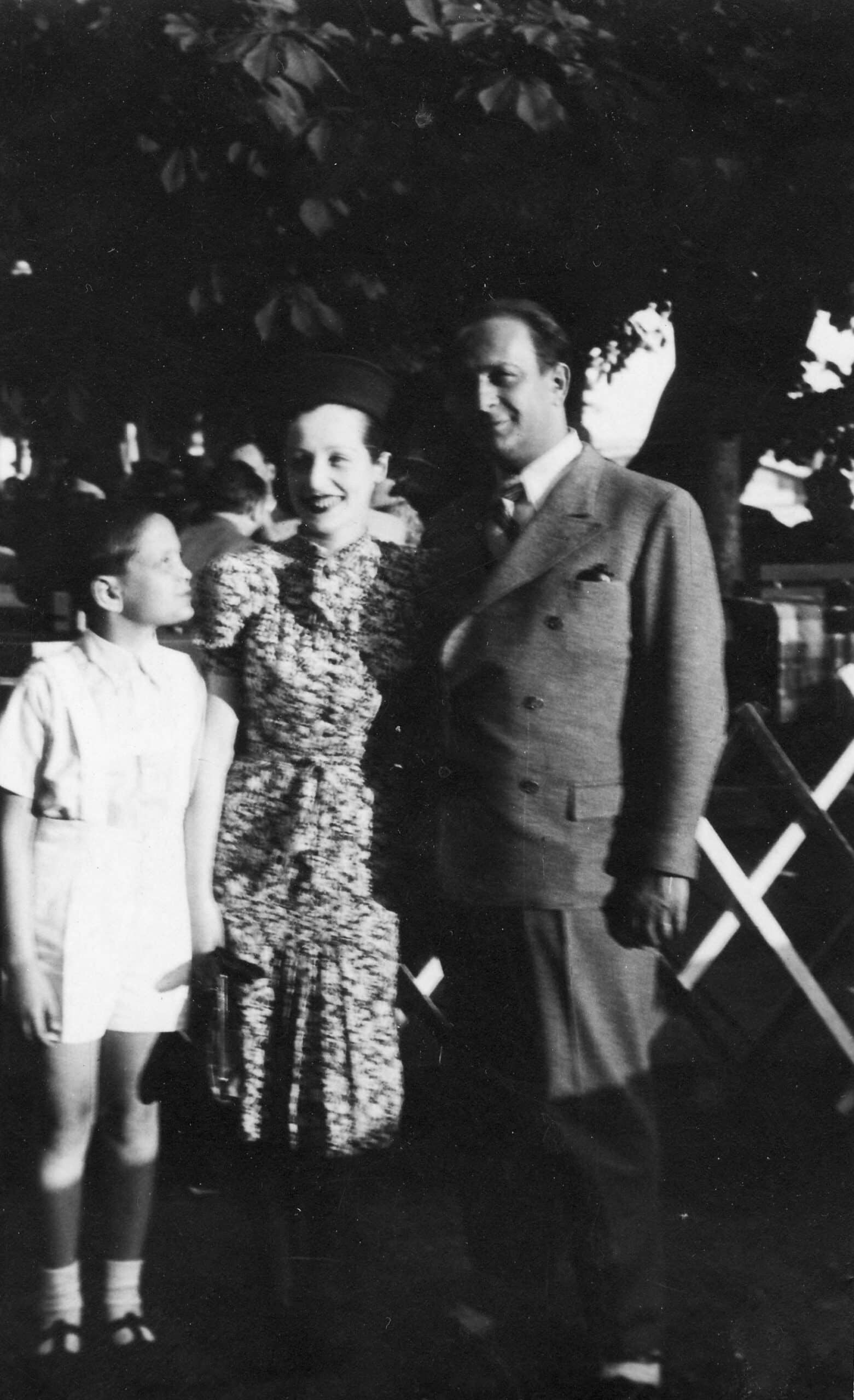
Meanwhile, the horrors of Nazi occupation found their way to Edith, too. Her husband was taken to the Russian front, where he was killed towards the end of the war. Edith was sent to Auschwitz, but instead of being sent to the gas chambers, she was taken to a slave labor camp of the Siemens company nearby.
When the war finally ended, Edith was able to return to Lučenec with her cousin, Miriam, who had been with her in the labor camp. Alice, still a very young child, was taken from Terezín and reunited with her aunt by an organization founded by human rights activist and Righteous Among the Nations Přemysl Pitter. Alice and Edith lived in a house in Lučenec together and started trying to piece their lives back together.
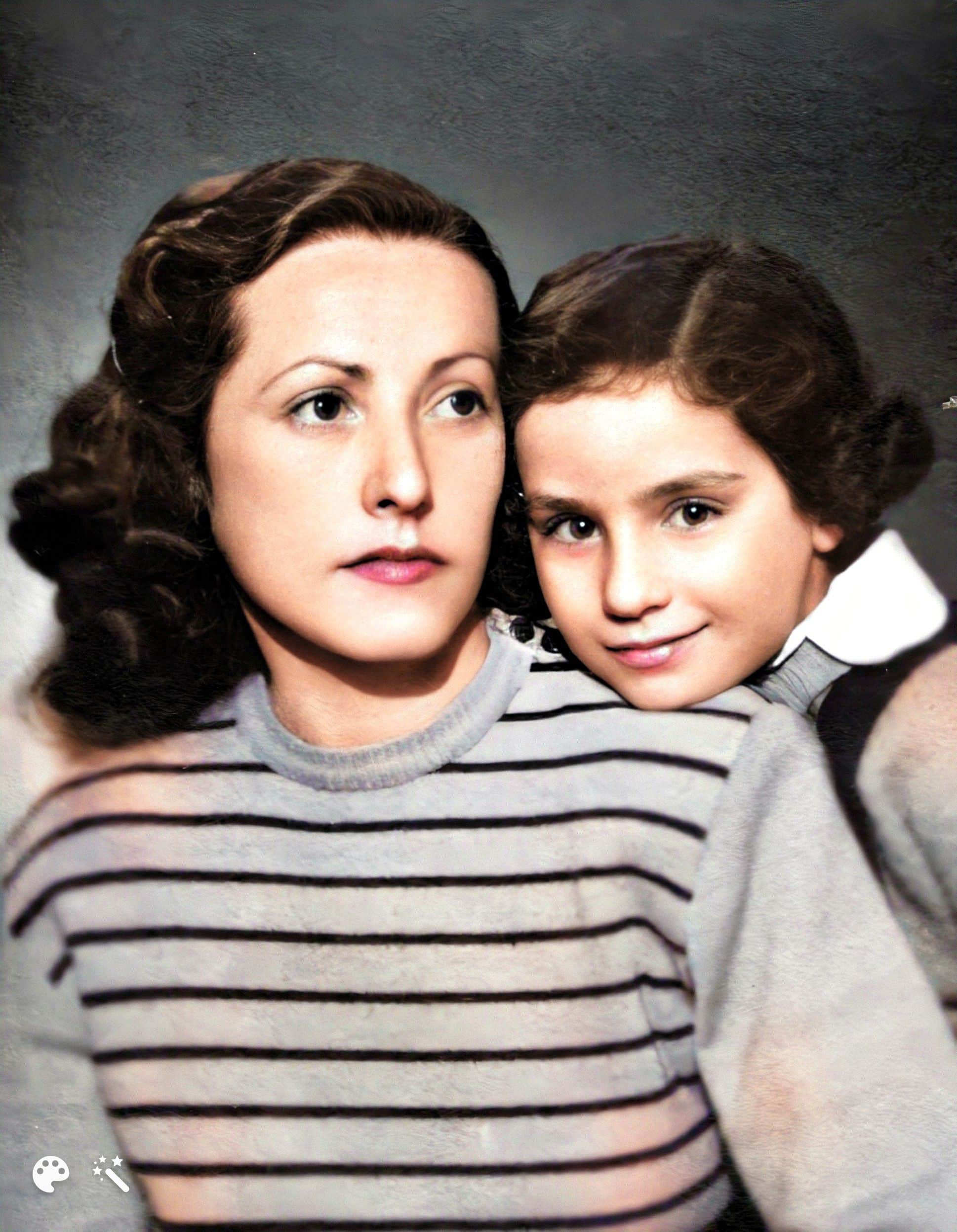
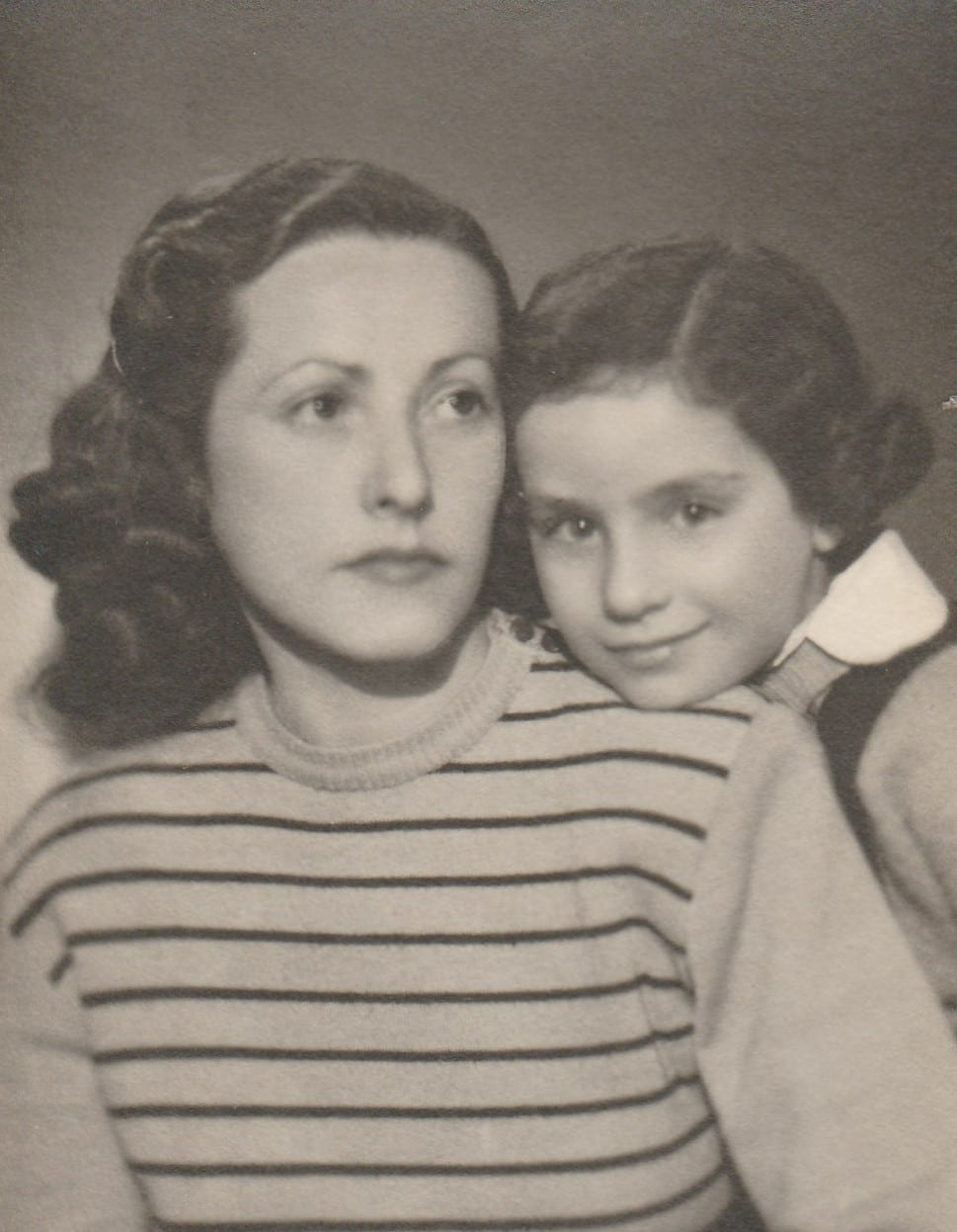
However, like many Jewish people who survived the war only to discover that most of their relatives had been murdered, Edith felt that her future lay elsewhere, and she decided to immigrate to Palestine together with her cousin Miriam in 1947. It’s unknown why she decided not to take little Alice with her: perhaps she feared for the child’s safety in the politically unstable Middle East, or maybe it wasn’t possible to obtain permission for Alice to leave under the Soviets. Whatever the reason, Alice was adopted by a Czech couple and Edith settled near Haifa, where she met and married David Weiss and gave birth to a son named Yossi.
Edith sent letters to Alice from Israel until 1956. As they were written in a mixture of Hungarian and what is probably Yiddish, Alice was not able to understand them. In one of Edith’s last letters, she included a photo of herself with her son Yossi. After 1956, she stopped writing, and Alice never heard from her aunt again.
Alice grew up, studied nursing, married a man named Miroslav Grus, and had 3 children.
Tragically, Edith — who, like many survivors of the Holocaust, was irreparably traumatized by the horrors she endured during the war — died by suicide in 1985.
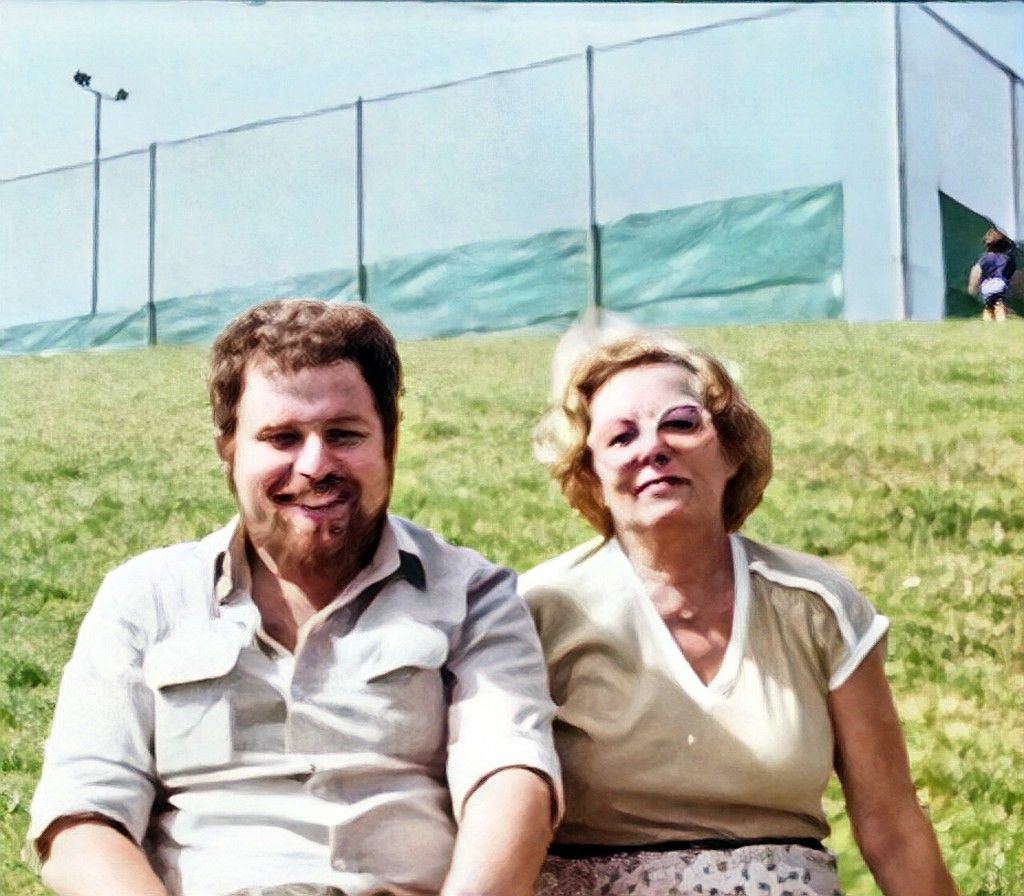
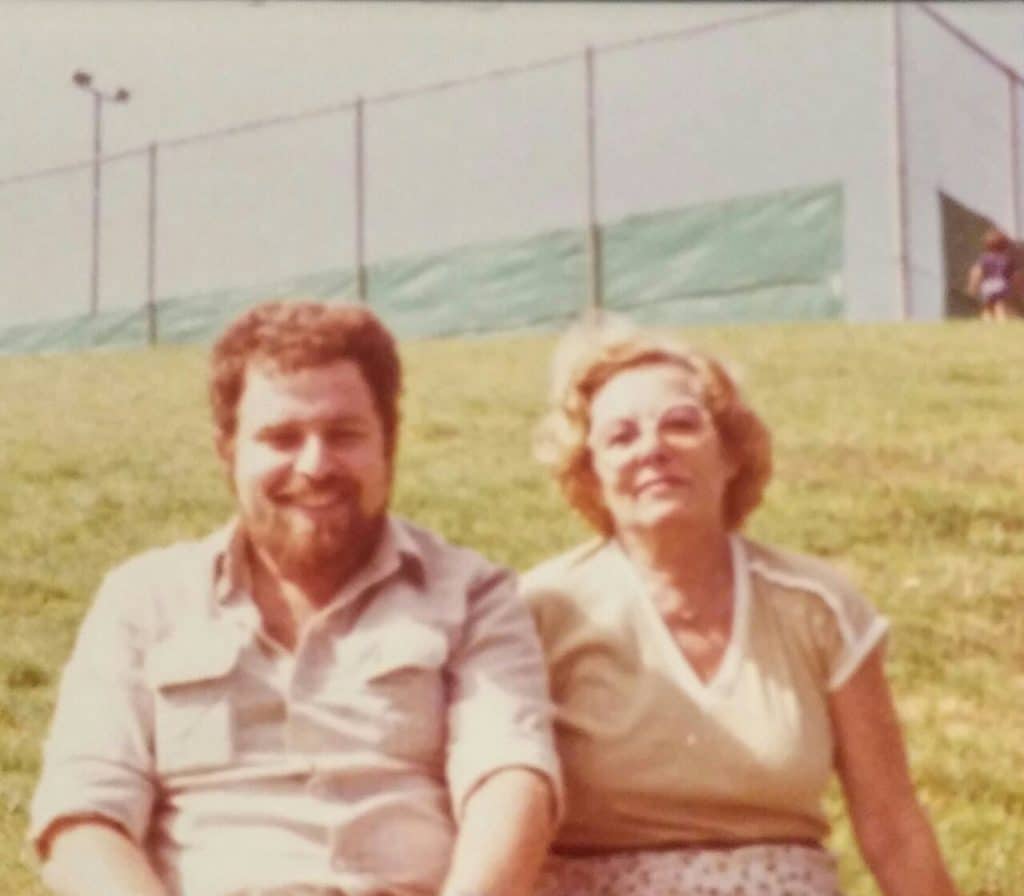
A connection from 5,000 miles away
In 2020, Michalya Schonwald Moss — the granddaughter of Moshe Schonwald, brother of the cousin who immigrated to Israel with Edith — had to cancel her plans to immigrate to Israel due to the COVID-19 pandemic. Stuck at home during one of the lockdowns, she decided to dedicate some time to learning about her family history, and signed up to MyHeritage.
“I thought I knew a lot about the family, but in fact, I actually knew nothing,” says Michalya. “My grandfather, Moshe Schonwald, did not speak a word after the war. I started researching — I looked for the name Schonwald, what is its origin? I knew nothing about it and where the family came from.”
After searching through documents and photos, Michalya decided to contact a genealogist based in Slovakia who was also using MyHeritage. “[He] very quickly mapped out the 120 members of my family who perished in the Holocaust,” says Michalya. He quickly received a Smart Match™ to branches of the family Michalya didn’t know about: Alice’s family. And the matches also indicated that there was another cousin living in Israel: Yossi Weiss, Edith’s son.
“I was most shocked when I found out, when I was 80, that I have such a large family,” Alice told CNN in an emotional video call. “I am just sad this didn’t come earlier.”
“To discover that one family member had survived that we never knew about, and that she was still alive and living in Prague, was as if we had found a living ghost,” Michalya told CNN. “And then to discover her story was especially heartbreaking.”
Yossi and the rest of the family were also shocked and deeply moved by the discovery.
“After I found Yossi and heard about his story, I offered to invite Alice to Israel so she might experience the life she could have had,” says Michalya. Alice had never been to Israel before, but she accepted the invitation, and this past summer, she flew to Israel with her husband, son, and daughter-in-law to meet her cousin and members of his family — including Michalya, who flew in from South Africa.
Alice told CNN that she was worried about taking the journey at her age, but she has no regrets. “Now I am so pleased I went,” she said.
Alice speaks no English or Hebrew, so she communicated with her newfound family through an interpreter. They visited the Theresienstadt museum and the World Holocaust Remembrance Center at Yad Vashem, where she gave her personal testimony to record for posterity.
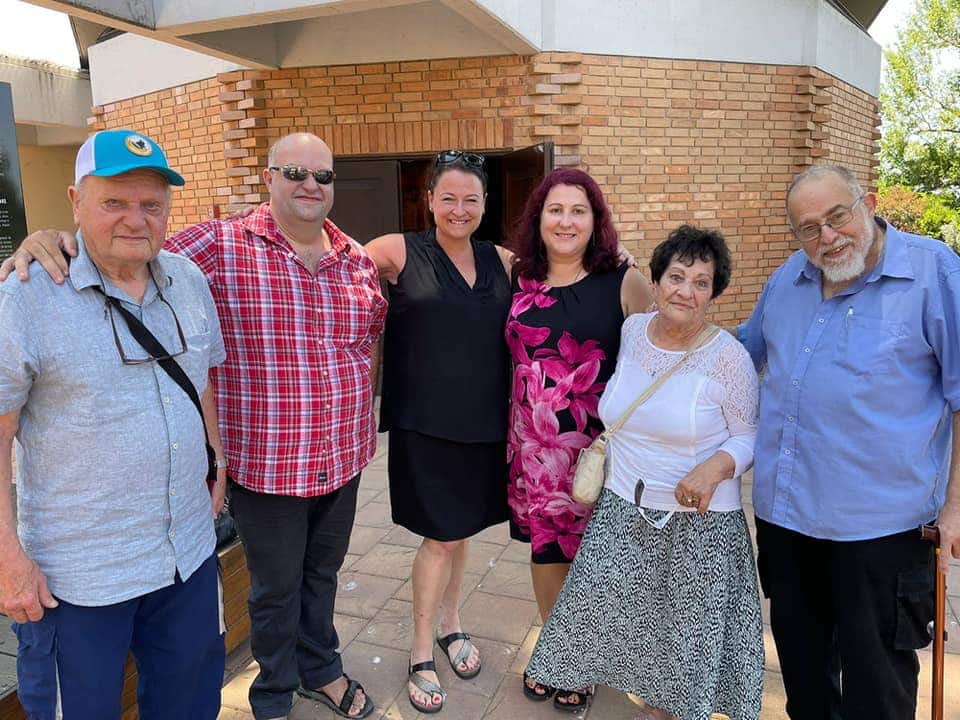
Left to right: Alice’s husband Miroslav, Alice’s son Jan, Michalya, Alice’s daughter-in-law Petra, Alice, and Yossi
They also visited her aunt Edith’s grave together, which was very important to Alice and helped give her a sense of closure.
Yossi struggles to understand why his mother didn’t bring Alice with her when she left for Palestine, but he knows that his mother carried a lot of trauma. “No one came back normal from there,” he says. “I know she very much loved her sister, the two sisters were very close.”
“By having her anew in our lives, she’s taught us what living looks like,” Michalya told CNN. “Everyday is a repair for our family. And thanks to Alice and the sparkle in her eyes and the love she emanates, we have become a family again.”
If you made an incredible discovery like this family did using MyHeritage — we’d love to hear about it. Please share it with us using this form or email us at stories@myheritage.com.
